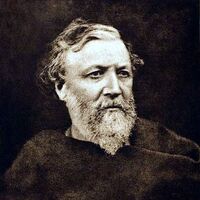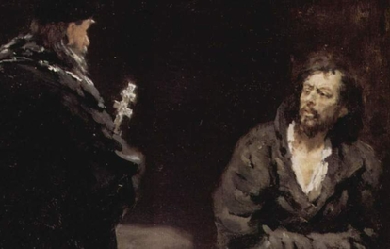A Toccata of Galuppi's
"Ay, because the sea's the street there; and 't is arched by...what you call
...Shylock's bridge with houses on it, where they kept the carnival:
I was never out of England - it's as if I saw it all.”
(lines 7-10)
In this stanza the speaker is making specific references to Venice. O'Gorman's note1 on what the speaker calls "Shylock's bridge" says that the speaker is referring to the Rialto bridge. O'Gorman says that the speaker calls the Rialto bridge "Shylock's bridge" because of a question that Shylock asks in Shakespeare's Merchant of Venice. Is the speaker doing more than just making the allusion to Merchant of Venice in order to refer to the setting, Venice? What else could the allusion do for the meaning of the text as a whole? Why Venice?
Venice is the home of the carnival, which the speaker alludes to repeatedly. For example, the woman in the poem "bite[s] her mask's black velvet" (line 17). The mask with black velvet was a customary costume of the carnival at Venice. The carnival at Venice was a long celebration before Lent, on which O'Gorman makes another note2. The celebration is hallmarked by decadence. The theme of sexual pleasure and the recognition of death (the celebration of Lent) is prevalent in the poem, which Robert communicates in his choice of Venice as the setting for his dramatic monologue.
The flesh motif continues with the allusion to Shakespeare's Merchant of Venice. The speaker alludes to Shylock, because Shylock wants to his one pound of Antonio's human flesh with whom he made a contract with. Shylock lent Antonio money for his friend Bassanio so that he can woo a woman that he fell in love with. The plot mixes all three of the elements that the speaker in the poem talks about: decadence (including sexual decadence), and death. In the poem, the sexual pleasure motif is found when the speaker asks the auditor, Galuppi, and the woman if they were happy. "Then, more kisses!" the speaker retorts to the pair's affirmative responses (line 23). He also creates the image of the woman's body in the fifth stanza. Death, although it runs through both Shakespeare's play and Robert's poem are different. In the play, Shylock does not succeed in getting a pound of flesh from Antonio's body, which would kill him. Death does not prevail, but it does in the poem. "'Dust and ashes, dead and done with, Venice spent what Venice earned,'" the poem reads (line 35).
The poet is saying that behind the façade of the quick tempo and sound of the toccata, and the behind the carnival mask in Venice, and the celebration before Lent, is death. The celebration of the carnival will always lead to Lent to celebrate Christ's death. Alluding to Shylock, but keeping the same happy ending is to say that the flesh cannot be preserved from death. Money cannot stave off death. Even all of the intense happiness of life (including sexual relations) will come to an end in death.



